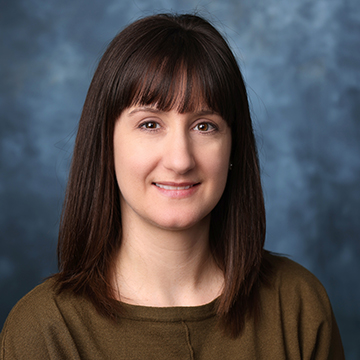Leadership Course Fills Gap in Higher Education
As the architect of a successful research career, Bonnie Essner, PhD, is adept at designing study protocols. Building and managing a team of investigators, however, was something she had no formal training in.
“At this stage of my career, my research program continues to accelerate, and our interdisciplinary team is expanding to include more trainees and colleagues,” says Essner, assistant professor of Psychiatry and Behavioral Sciences and Pediatrics. “When I began to explore ‘Leadership and Management Strategies for Clinical Investigators,’ I realized the course could guide me in building research-specific management skills to support our program’s success and to attend to each team member’s individual experiences.”
The course is designed for physician-scientists, clinical researchers, and other principal investigators who have health-focused research. It is led by Kellogg faculty in an interactive classroom setting, participants in the four-day course are exposed to practical and effective approaches to topics including organizational culture, strategic time management, feedback and persuasion strategies, and diversifying funding sources.

The Kellogg faculty are incredible instructors. I appreciated the concepts that they shared around personal leadership skills, intentionally shaping cultures that work for the whole research team, and effective collaboration.”
“The Kellogg faculty are incredible instructors,” says Essner, who completed the program in 2024. “I appreciated the concepts that they shared around personal leadership skills, intentionally shaping cultures that work for the whole research team, and effective collaboration.”
Essner is a core research faculty member of the Osher Center for Integrative Health and research director of the Neurointestinal and Motility Program at Ann & Robert H. Lurie Children's Hospital of Chicago. As a clinician-scientist, with clinical, teaching and supervision, and research roles in the medical school and at Lurie Children’s, her research looks at how a teenager’s thinking and emotions affect how their body perceives physical sensations, especially abdominal pain.
Launched in 2020, ‘Leadership and Management Strategies for Clinical Investigators” is designed for faculty members who are early to mid-career and building their research program. The program offers a chance to build a foundation of evidence-based management and leadership skills that can be applied to the business side of science. Eligible individuals can apply their Employee Certificate Tuition Benefit to cover the complete cost of the course.
“Using the tuition benefit made it possible to participate in this amazing program,” says Ida Salusky, MPH, PhD, research associate professor of Medical Social Sciences. “Academics are not typically taught how to lead and manage teams as part of graduate training. We learn by what is modeled to us, good and bad. The course exposed me to research-based curricula to effectively develop and structure teams, provide effective feedback, and grow talent.”
Salusky is a clinical-community psychologist, educator, mentor, and interdisciplinary researcher focused on increasing equity within higher education and healthcare settings. Her work broadly focuses on system level interventions to address issues of structural inequality and oppression.
Both Salusky and Essner credit the activity-based learning, group and partner work, and improv approaches with helping to demonstrate the courses core concepts while also showing how to practically apply them to their own experiences and integrate them into their work afterward.
“We continue to enhance the coursework so that it helps researchers harness unique leadership skills often not taught in the many years of clinical and scientific education they’ve already received,” says Course Director Divakar Mithal, MD, PhD.
The 2025 “Leadership and Management Strategies for Clinical Investigators” course will take place May 12-15, 2025. An informational session will take place Wednesday, November 20, from noon to 1 p.m. via Zoom.
“ ‘Leadership and Management Strategies for Clinical Investigators’ helped me reflect on my personal strengths and where I need to rely on others to get things done,” says Salusky. “I would highly recommend that all faculty take advantage of this course. It’s so important to have explicit training in how to effectively build, maintain, and manage teams.”
Written by Roger Anderson




